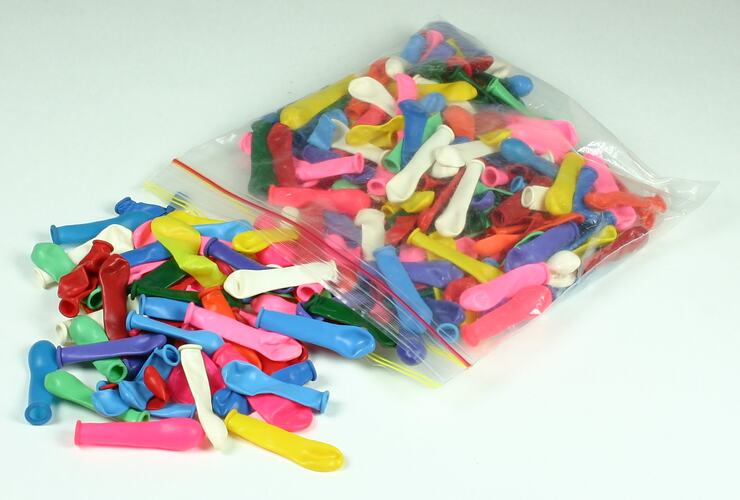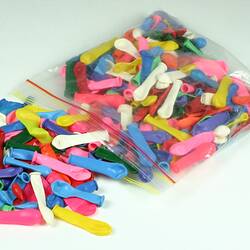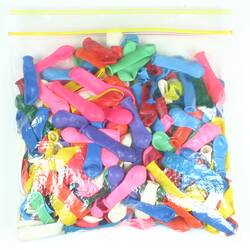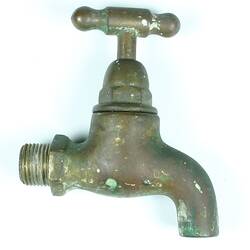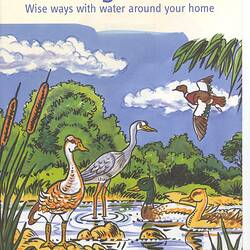Summary
These water bombs were acquired as part of the Museum Victoria 'Curator for a Day project', undertaken in October 2007. Water bombs are a popular water-related game. Small rubber balloons are filled with water, tied and then thrown at people and objects and then explode on impact. In light of increasing water shortages, the usage of this style of game was felt by the donor to be inappropriate, hence the donor's inclusion of it in the 'Curator for a Day' project.
The 'Curator for a Day project' was a collaboration between the Williamstown Environmental Neighbourhood Cluster and Museum Victoria's Water Smart Home project. Students were required to nominate objects relating to water conservation and changing water behaviour for inclusion in the Museum's Water Smart Home collection.
The Williamstown Neighbourhood Cluster is made up of Williamstown High School, Williamstown North Primary School, Williamstown Primary School and Spotswood Primary School. The cluster aims to develop a model for environmental education through active learning opportunities through local community partnerships. Students research, develop understanding and actively engage in environmental projects within their neighbourhood.
Physical Description
The Water Balloons/Bombs are contained in a plastic 'ziploc' bag. The balloons are made from rubber and each balloon resembles a teardrop shape and has a lipped rim at the end.
Significance
This 'Curator for a Day' collection of water related objects is historically and technically significant on both a practical and conceptual level. Several of the objects (hose attachment, sprinkler fitting, garden tap and car wash) are once common water related household and garden objects which reflect water behaviours and practices that have become outdated over recent years. Similarly, the novelty and game items reflect the way that water used feature in leisure activity and how this behaviour has changed. There is a need to collect these contemporary objects while they are in the process of being replaced but are still relatively common and therefore accessible for donation/acquisition. The collection is historically and technically significant as it offers insight in what this group of upper primary and lower secondary school students feel to be important objects to collect and conserve for the future. This in turn highlights how they perceive the current water crisis as well as how they perceive museums and the types of contemporary objects that should be collected.
The Curator for a Day collection of objects is also a very practical critique of water use and perceptions of wastefulness. It documents the current water use practices of this group of students and the change that is occurring in their own life time. It is an extremely tangible and insightful reflection of their own lived history. Acquiring this collection is also a dynamic way of documenting the unique 'Curator for a Day' project. In doing so, the evolution of the Water Smart Home program as well as how it adapted to the changing needs of the community is captured. In addition, the differing ways that Museum Victoria is engaging with the community is documented by the acquisition of this collection.
This object is strategically applicable to the Water Smart Home Project and broader issues of sustainability. This collection of objects is directly connected to the public program and water related heritage collection components of the Water Smart Home website. It is also representative of responses to environmental issues and to water conservation in a domestic context.
More Information
-
Collection Names
-
Collecting Areas
-
Acquisition Information
Donation
-
Partner Organisation
Williamstown Environmental Neighbourhood Cluster, Williamstown, Greater Melbourne, Victoria, Australia, 2007
-
Collector
Water Smart Home Project, Melbourne, Greater Melbourne, Victoria, Australia, 2007
-
Classification
-
Category
-
Discipline
-
Type of item
-
Overall Dimensions
400 mm (Width), 210 mm (Depth), 38 mm (Height)
-
References
[Link 1] Viewed by LDH 3.12.08 [Link 2] Viewed by LDH 3.12.08
-
Keywords
Conservation, Preservation, Sustainability, Water Conservation, Water Consumption, Water Smart Home
